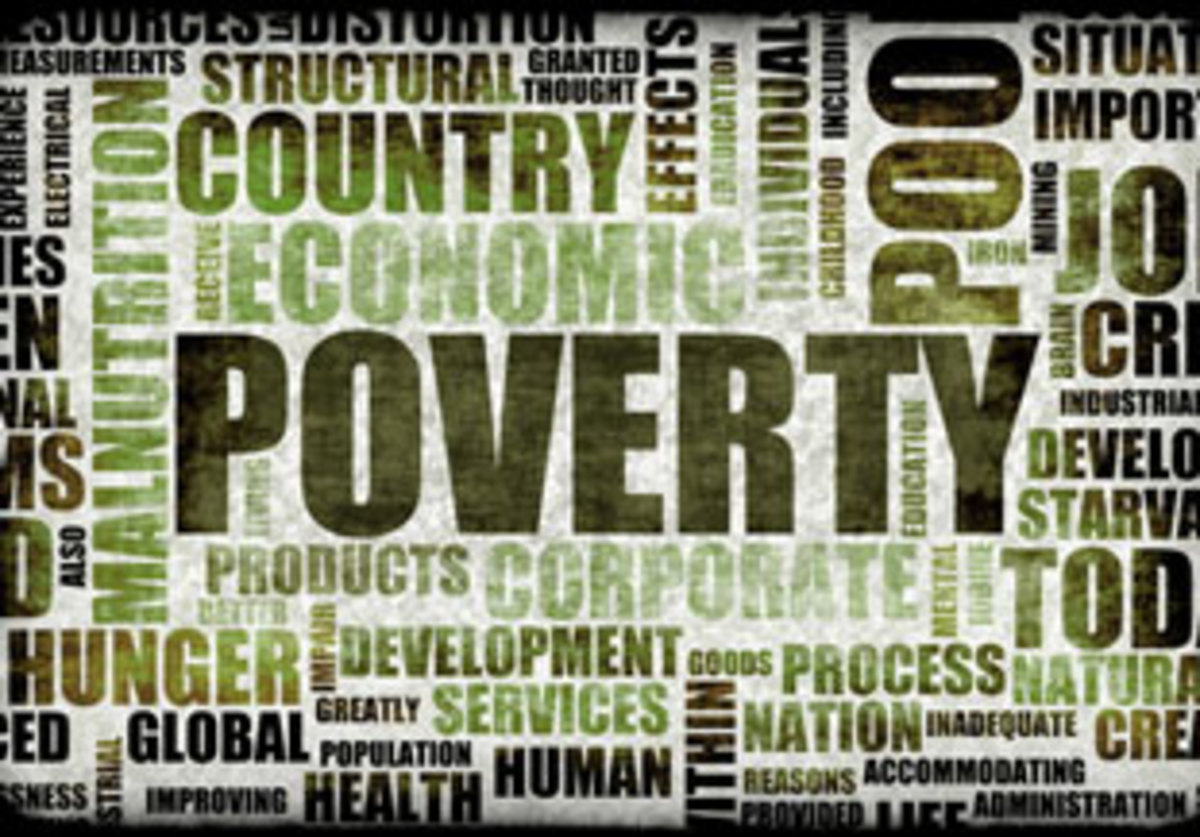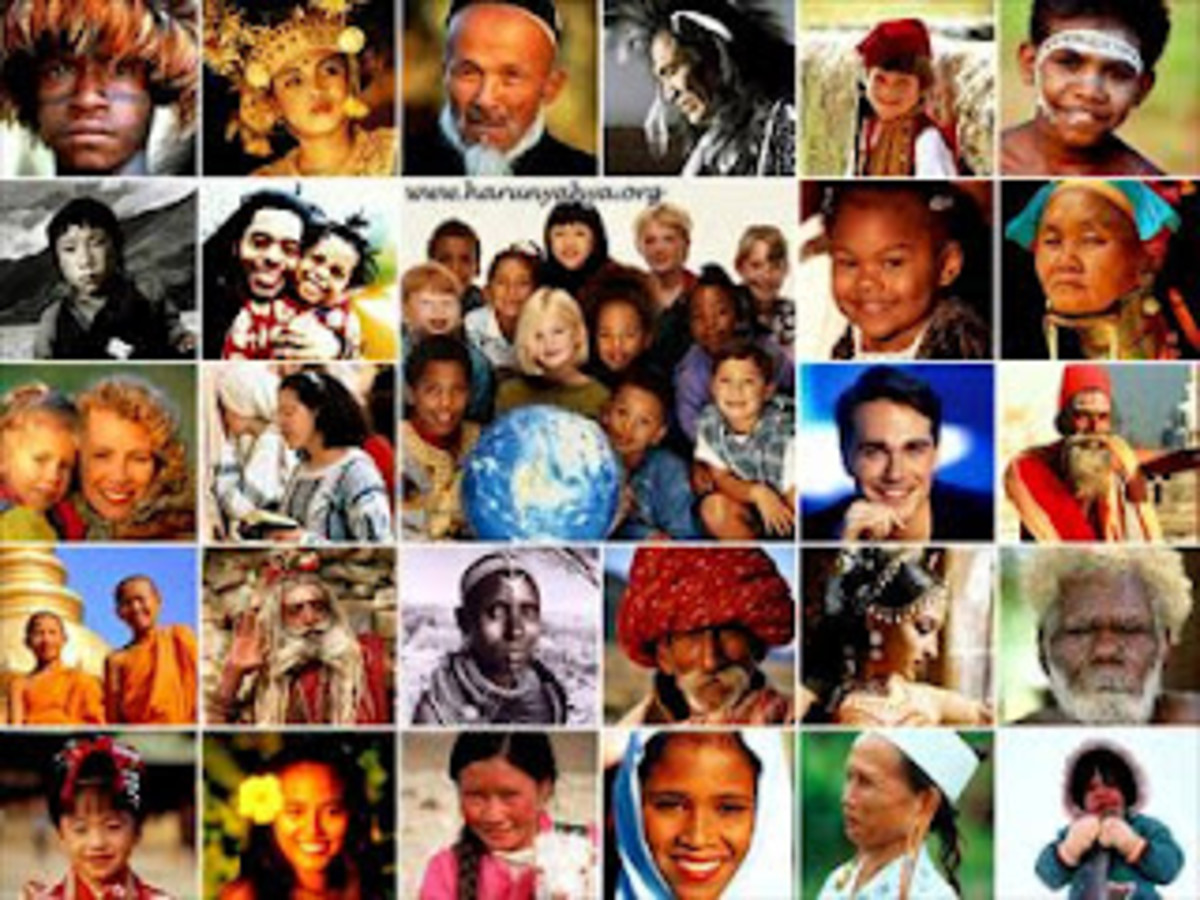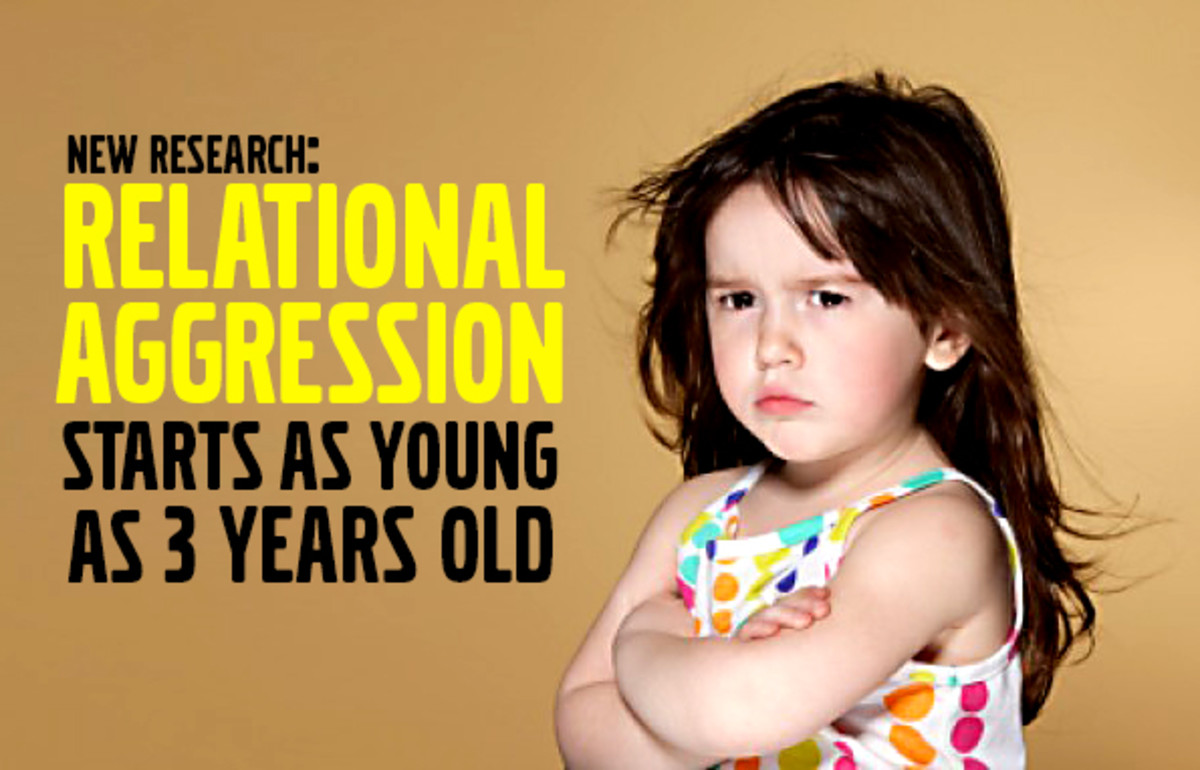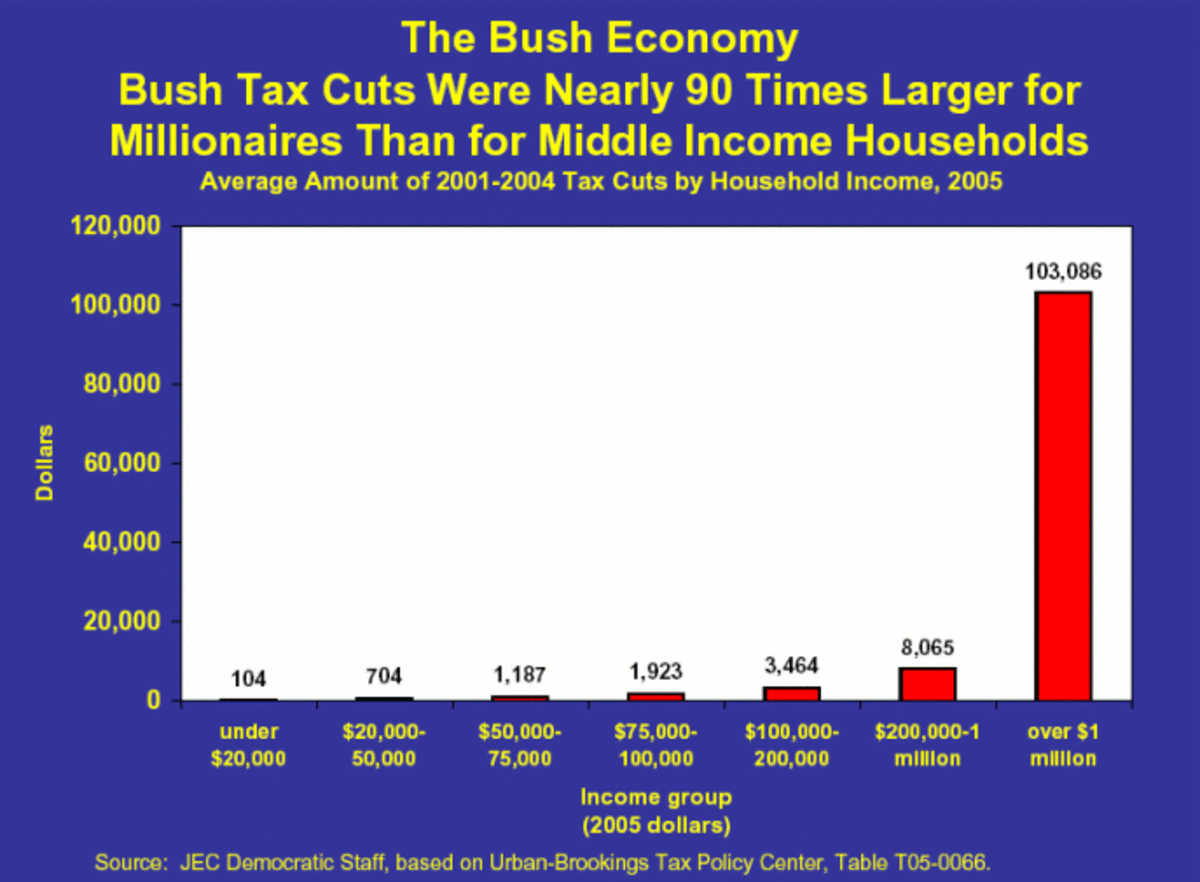Charity Isn't What You Think It Is
Within every society, there is always that group which fights to support the downtrodden and poor. In their efforts to provide sufficient to aid this group, they seem to emphasize the message, “We can do better than this.” But what is confusing is that there is no defined standard for exactly what society is trying to do. There is no goal, or final destination for society’s efforts. Instead, there exists only a vague aim towards good which, while good-intentioned, does not help to define this elusive perception of ultimate prosperity.
So what should humanity do? The answer is to first define what each and every human being is entitled to during their life. Some may argue that the Bill of Rights provided the essential freedoms needed to ensure a productive and comfortable life style which would make sure that no man was economically disadvantaged. Unfortunately, as history has shown, these rules have merely aided the economic beast which is capitalism. While capitalism has provided society with a dog-eat-dog-world, ultimately producing highly efficient, competitive businesses and services, it has also produced a class which forced into the bottom of the financial pool because of their inability to compete within the performance based markets. This “sub” proletarian class, due to its lack of financial sway or purchasing power, eventually finds itself confined to the title of “poor”, the most socially and financially consistent class since the dawn of time.
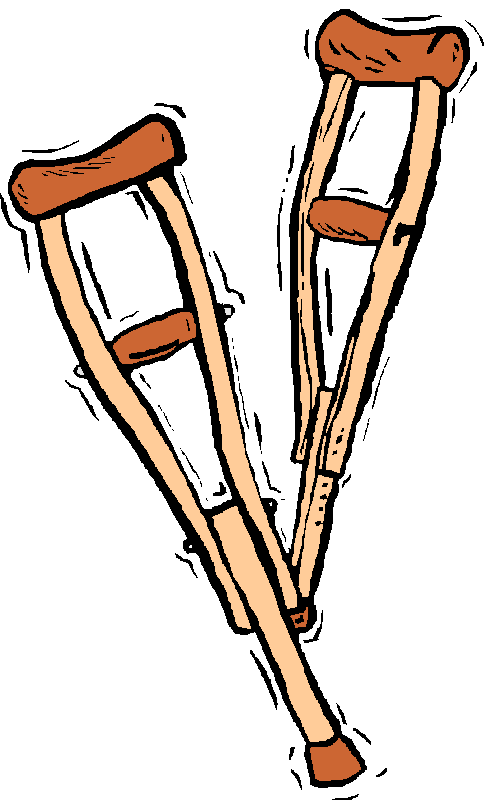
The Crutch
Based upon the average “American life”, most citizens find themselves able to access food, water and shelter with relative ease. Based upon the average life within a third world country, finding sufficient and edible sources of food and water are a struggle everyday. Because of this, the first aspect which is a fundamental part of helping the poor is offering the opportunity to others to receive these goods. Notice, that this statement doesn’t support the average American has the to control these goods or even purchase them. What is essential to the message of this idea is that the opportunity which each individual holds within the United States to access the basic necessities of life, is much greater than that of people located in third world countries. Take Ghana for example, a country where 6,000 people die a day from water related illnesses, and where residents must walk an average of 3.7 miles to access clean water. What charity provides to those areas lacking these resources, is eliminate the opportunity factor, and simply give away goods which will help to sustain those struggling. Unfortunately, because of this free source of supplies, the mind develops a crutch, creating a mental block for the poor to never have to think of producing for themselves on the given day that they receive supplies. The same situation applies to any soup kitchen, demonstrating that while the environment may change, the human mentality does not. Those families that show up to receive free food, instead of spending their time thinking of ways to further extend their financial depth, ultimately give up a day in order to relax. This false dependency developed by the charitable foundations, while in the short term beneficial, looking at the effects in the long term this process is simply building up false hopes within the minds of the poor. When the soup kitchen is unable to provide any more food, and when the contributing members cease to help in order to deal with their own problems, who will be there to take the place of these major distributors? The reality is that no one will. Charity is the last stand, and if that falls, the poor will face catastrophic problems. So instead of fighting to find ways to change the system, and support a dying method, humanity must disestablish charity foundations and begin afresh.
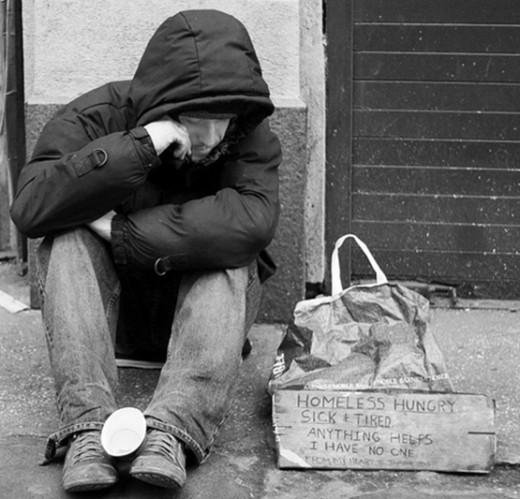
The next problem that would be encountered through this approach would be dealing with those who cannot provide for themselves (i.e. children, old people, paraplegics, disabled people…). The solution to this would lie in the opening of emergency facilities where applicants would have to qualify in order to live. ”But isn’t this reverting to the tenets of charity?” These facilities would be initially funded by outside investors, and the residents within this help center would produce profits based upon the simple mass production of certain goods. Within this concept of opportunity lies the aspect of employment and unemployment. Since currency holds the key to purchasing the resources essential to survival, jobs are essential to a person’s life. These profits would then be recycled into the center, paying for the residents food, water, shelter and education.

What charity does is eliminate the necessity of jobs. While several decades ago this problem could have been resolved through establishing a community work center which would delegate supplementary work to those in need of cash, the financial circumstances which young teens and unemployed people are facing now is worse than ever. The job market is experiencing a shift so dramatic, that the future of teens now is becoming more and more bleak. What has essentially happened, is with the annihilation of such large franchises as Lehman Brothers, Washington Mutual, AIG and Bearn Sterns, is that the over educated are now taking the middle class jobs that teens once used to hold. Once high-end traders on the market, or analysts for some of the largest financial industries, these people are now found among the workers of Best Buy and Target. This disruption within the job market has displaced the thousands of teens now looking to become employed, therefore eliminating any chance of supplying the poor with supplementary jobs. So with extra jobs for the poor no longer an option, the only logical solution would be to start businesses targeted towards battling social issues themselves. Thus, a variation of social business is born.
The final aspect that plays a significant role is that of purpose. If people do not have a purpose to wake up in the morning and work through their struggles in order to achieve some sort of happiness or goal, then there is no point to existence. While harsh, there is no reason to follow through on anything at all unless motivated by a desire. To combat this, multiple variations of social business would be created in order to match up to the ideals or desires of any person. Social business is both accommodating and versatile, able to adapt to any industry. Therefore, the downtrodden worker interested in cars could join an auto social industry, while someone interested in the distribution or making of yogurt could work within a food manufacturing facility.
The Final Problem
Ultimately, the problem that remains is housing. As land is not free, how will those who already live without land be able to afford the basic necessities of life without already owning shelter? Will churches have to temporarily open their doors to the poor, or will supplementary homes be opened upon the agreement through social contracts? If social businesses are able to become the centers for the poor, those without homes will not have to deal with this problem. Through the production of goods specifically aimed at combating social issues, i.e. Grameen Danone, the profits earned through such transactions will cover the living costs of the inhabitants.
By examining the benefits and inefficiencies of charity, it is apparent that this old system of good-willed compassion acts as one of the restraints holding the poor back. Ultimately, charity establishes lax behavior, dependence and lowers self-esteem. In order to better deal with the world’s worst social issue, humanity must recognize the inability of charity to function efficiently, and realize that social business is the way to ending world poverty.
*Please comment and rate! Your opinion matters!

